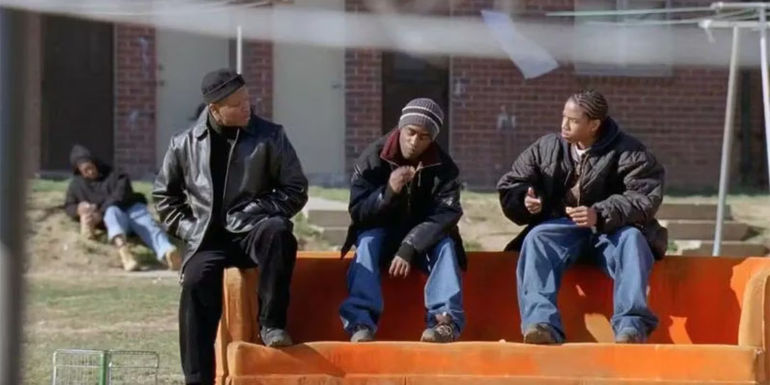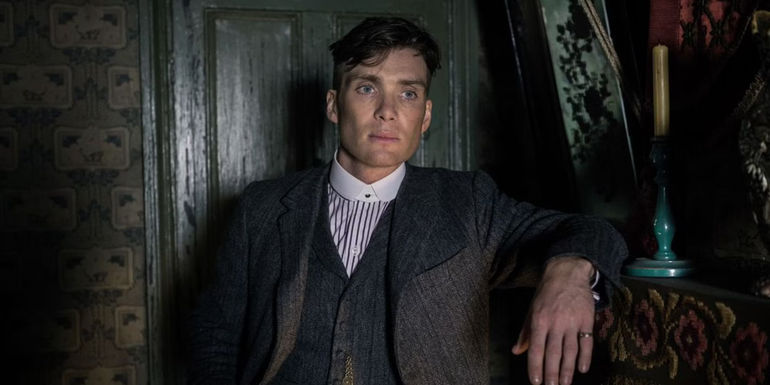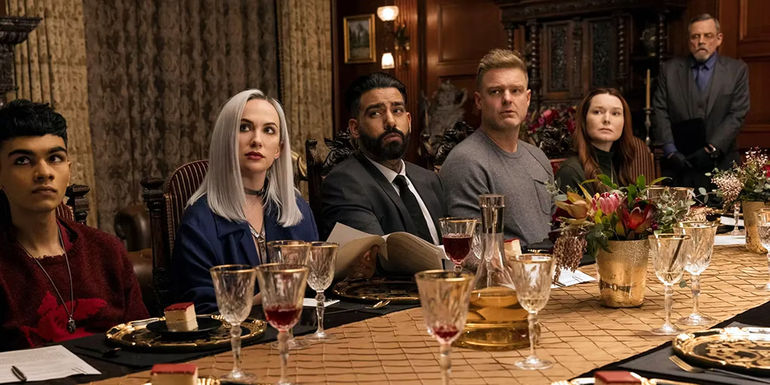
From Succession to Rome: Embracing Terrible Characters in TV Shows

Explore a journey through the top TV shows that feature morally questionable characters, from Succession's Logan Roy to Rome's Titus Pullo and Lucius Vorenus. Delve into the complexity of these characters and the audience's engagement with their psychology and morality.
1. Succession: A Dive into the Ultra-Rich
Succession, streaming on Max, takes viewers on a riveting journey through the lives of the ultra-rich, led by the manipulative CEO Logan Roy. Despite their flaws, characters like Kendall, Roman, Shiv, and Connor Roy become oddly sympathetic in the shadow of their father's abusive parenting.
The cast of Succession season 3 with Brian Cox as Logan at the forefront
2. Game of Thrones: Morally Ambiguous Characters
HBO's Game of Thrones presents a plethora of morally ambiguous characters, including Jaime Lannister and Theon Greyjoy, whose paths to redemption captivate viewers. The series challenges the audience's perception of redemption and evokes varying degrees of sympathy for its characters.
Nikolaj Coster-Waldau as Jaime Lannister in Game of Thrones season 8
3. The Wire: Blurring the Lines of Morality
In HBO's The Wire, the line between cop and criminal blurs, showcasing the complexities of urban systems. Characters like Bodie, D'Angelo, and Cutty reveal the impact of society on their actions, while others like Clay Davis and Rawls misuse their power for personal gain. The series delves into the honor code even among crime leaders, making the characters captivating despite their deeds.
Lawrence Gilliard Jr. as D'Angelo Barksdale, Tray Chaney as Poot, and Michael B. Jordan as Wallace hang out in the Low Rises in The Wire.
4. Lost: Evolving Perspectives on Villainy
Lost introduces characters like Sawyer and Sayid, who evolve from villains to protagonists over the series. The shifting perspectives on villainy culminate in characters like Ben Linus, who elicit a mix of sympathy and complexity as the narrative progresses. The show challenges traditional hero-villain dynamics, creating multifaceted characters that resonate with the audience.
A composite image of Ben Linus and the Church from Lost
5. Breaking Bad: The Narcissistic Protagonist
Breaking Bad follows Walter White, a criminal narcissist whose actions spiral out of control. As the series unfolds, viewers find themselves sympathizing with characters like Jesse and Gus, despite their own misdeeds. The show's exploration of morality and likability in flawed characters adds layers to the narrative, engaging audiences in a complex web of emotions.
Gus, Walter, Jesse, and Saul in a custom Breaking Bad image
6. Peaky Blinders: Charismatic Crime Bosses
Cillian Murphy's portrayal of Thomas Shelby in Peaky Blinders blurs the lines between hero and villain, showcasing a crime boss with a complex moral compass. Despite his dark deeds, Tommy's attempts at redemption and the presence of corrupt figures like Oswald Mobley create a morally gray landscape. The series challenges viewers to navigate the morality of its characters, especially its lead.
Cillian Murphy as Thomas Shelby
7. Rome: Soldiers with Dark Deeds
Rome offers a unique perspective through soldiers Titus Pullo and Lucius Vorenus, who commit violent acts amidst historical turmoil. Despite their actions, the characters resonate with audiences, showcasing the complexities of their era. Pullo and Vorenus, though flawed, become fan favorites for their relatable struggles and engaging narratives.
Titus Pullo and Lucius Vorenus standing together in Rome
8. The Fall of the House of Usher: Supernatural Intrigue
Mike Flanagan's adaptation of Edgar Allan Poe's work in The Fall of the House of Usher blends supernatural elements with modern twists. The Usher family's manipulative dynamics and the heirs' fates draw viewers into a world of dark intrigue and sympathy for characters who would be deemed despicable in reality. The series explores the depths of human nature through a haunting lens, inviting audiences to connect with the darker side of storytelling.
The Usher family sits at the dinner table.


















